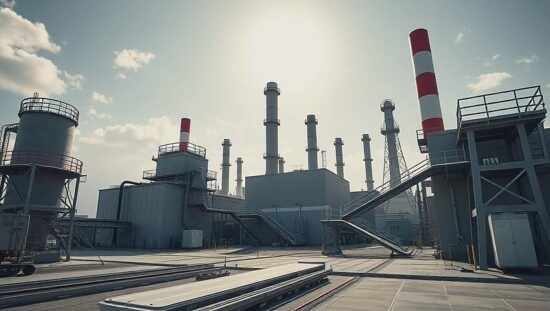Germany’s largest energy company, RWE, has urged Economy Minister Katherina Reiche to expedite the tender process for new gas-fired power plants. Markus Krebber, CEO of RWE, emphasized the necessity of these plants to ensure energy security, particularly during periods when wind and solar power generation are insufficient.
Speaking to the Rheinische Post, Krebber stated that a rapid clarification on how the federal government intends to incentivize construction is now anticipated. He suggested awarding contracts for ten gigawatts of capacity through a competitive process, ensuring the most cost-effective providers are selected.
Krebber estimates that the cost of this energy security measure would be approximately 0.2 cents per kilowatt-hour, less than one percent of the current electricity price. The swift commencement of construction is deemed essential, not only to bolster supply but also to facilitate Germany’s transition away from coal. RWE itself has plans to build three gigawatts of gas-fired blocks at existing coal plant locations in North Rhine-Westphalia.
The Federal Network Agency projects a potential shortfall of up to 22.4 gigawatts of controllable capacity by 2035, assuming renewable energy expansion targets are met and no plants are shut down. A slower pace of the energy transition could increase the need to as much as 35.5 gigawatts. Controllable capacity encompasses a range of technologies beyond fossil fuel power plants, including green hydrogen-powered plants, pumped hydro storage and battery storage. Furthermore, controllable loads and electric vehicle storage can also contribute to grid stability.
The construction of gas-fired power plants faces scrutiny due to their carbon dioxide emissions, which, depending on the use of liquefied natural gas (LNG), can exceed those of coal-fired plants. Carbon capture and storage (CCS) technologies, designed to separate and store CO2 underground, remain costly and are generally recommended by climate scientists only for emissions that are difficult to avoid, citing risks and limited storage capacity.





